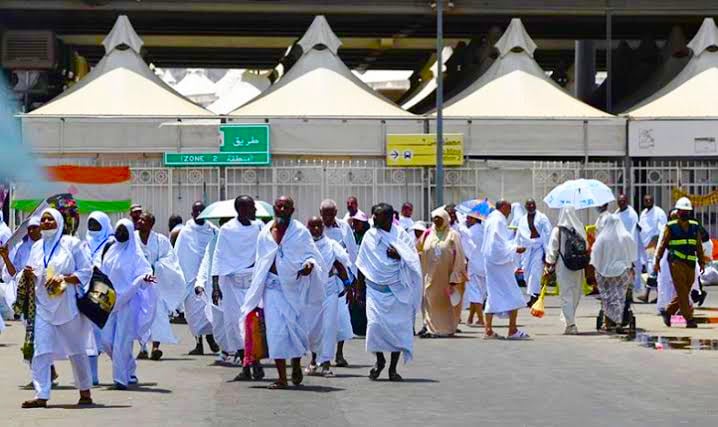THE Kingdom of Saudi Arabia has unveiled a fresh set of strict health and vaccination requirements for all intending pilgrims participating in the 2026 Hajj exercise (1447 AH), reinforcing its longstanding commitment to public safety and disease prevention during the world’s largest annual religious gathering.
In a new circular issued by the Saudi Ministry of Health sighted by News Point Nigeria, the Kingdom declared that only medically and mentally fit pilgrims who comply with a comprehensive vaccination regime will be granted entry permits for the sacred pilgrimage.
The document outlines several medical conditions that will automatically disqualify any intending pilgrim from participating in the 2026 Hajj. These include:
Major organ failure (heart, lungs, liver, or kidneys)
Advanced chronic illnesses
Dementia or severe senility
High-risk pregnancies
Cancer patients undergoing chemotherapy or radiotherapy
Also on the list are individuals suffering from infectious diseases such as tuberculosis, viral hemorrhagic fevers, or any illness that poses a public health threat.
Equally barred are persons with neurological or psychiatric disorders that impair judgment or could endanger the safety of others.
According to the circular: “No pilgrim suffering from the listed diseases will be allowed to travel. Health certificates will be strictly verified both before departure and upon arrival in Saudi Arabia.”
The Kingdom also reaffirmed that vaccination compliance remains central to its Hajj health policy. Intending pilgrims must present valid certificates for the following:
COVID-19 vaccine (Saudi-approved, last dose between 2021 and 2025, taken at least two weeks before travel)
Meningococcal Meningitis (ACWY) vaccine (administered between 10 days and 5 years before arrival)
Polio vaccine (IPV or bOPV/novel OPV2) mandatory for Nigerian and other African travellers at least four weeks before departure
Yellow Fever vaccine required for all travellers aged nine months and above
All vaccines must be documented on the International Certificate of Vaccination (Yellow Card), which will be verified at multiple checkpoints.
Saudi health authorities confirmed that comprehensive medical screenings will be conducted at all entry points, land, air, and sea during the Hajj season.
Pilgrims who fail to meet the health criteria risk denial of entry, isolation, or further medical evaluation before being allowed to proceed to the holy sites.
The new rules are part of the Kingdom’s proactive strategy to minimise disease transmission, especially given the mass convergence of millions of pilgrims from diverse parts of the world.
Reacting, the National Hajj Commission of Nigeria (NAHCON) has called on all intending pilgrims to begin their health screenings and vaccinations early, to avoid last-minute hitches or disqualification.
The Commission’s Deputy Director of Information and Public Relations, Fatima Sanda Usara, said NAHCON is already collaborating with State Muslim Pilgrims Welfare Boards and licensed tour operators to ensure full compliance with Saudi Arabia’s new health rules.
“These new requirements are designed for the safety of all pilgrims. Early compliance will not only prevent travel disruptions but also protect the health of our Nigerian contingent,” she said.
The Ministry of Health further emphasized that it reserves the right to introduce additional preventive measures in consultation with the World Health Organization (WHO) should any global disease outbreak or health emergency occur before or during the Hajj period.







